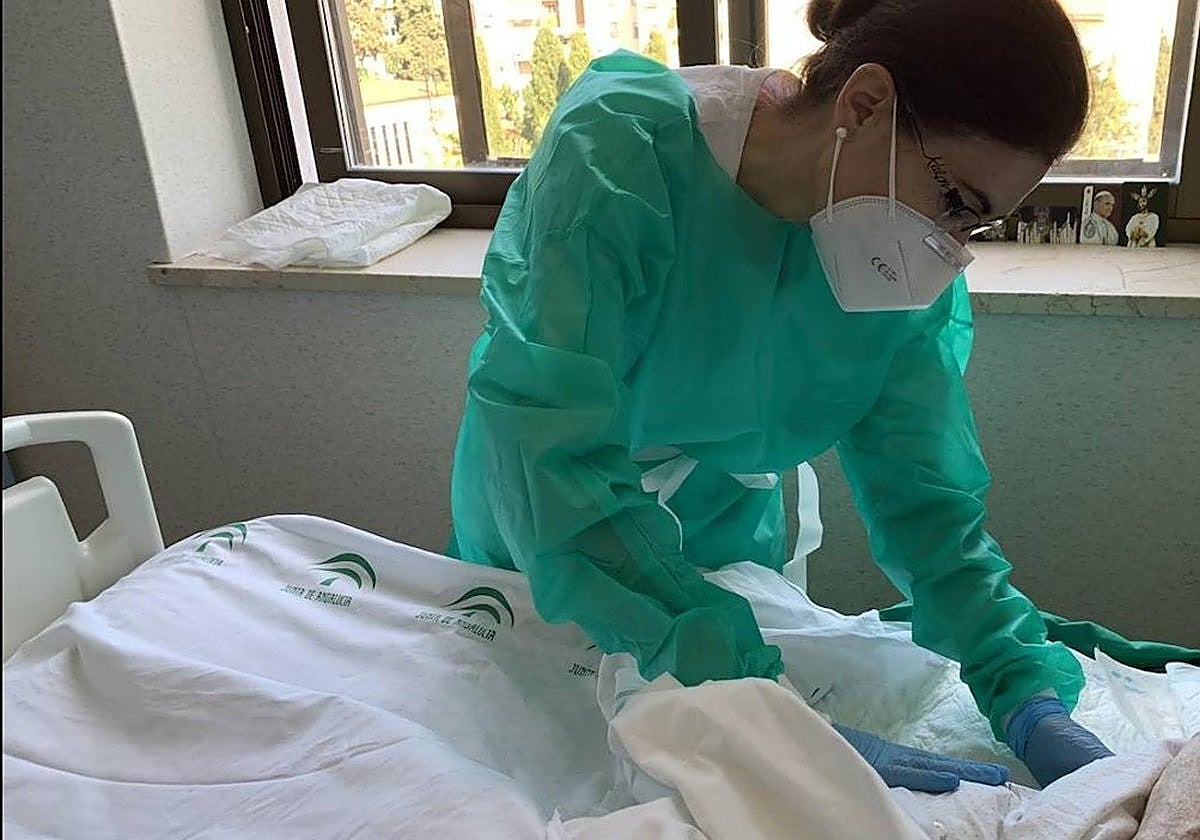Report reveals more than half of all recently graduated nurses leave Andalucía to work
A nursing association alludes to the lack of job opportunities while the regional government claims that in 2025 there will be more than 37,000 professionals, 8,400 more than in 2018
More than 170 nurses have graduated this year from the Faculty of Health Sciences and another 50 from the University of Malaga (UMA) University School of Nursing in Ronda: 220 in total. However, their job opportunities once they enter the labour market are greatly reduced, according to the Andalusian Nursing Council (CAE) and the Official College of Nurses of Malaga. The first of these institutions estimates that "more than 50 per cent of the nurses who graduate annually" from the region's universities leave. In Malaga more than 110 students who have completed their degrees leave the province to work in other regions or countries.
However, the Junta de Andalucía's health and consumer affairs department argues that "the total number of nurses in Andalucía in 2025 is 37,085 - 8,407 more than in 2018". It added that there isn't a "drain of professionals in the region" which is "committed to the role of nursing in the public health system and in line with remunerating them appropriately". However, it added, "There is always room for improvement, on which we are working hard."
According to the Junta, "measures have been implemented to improve the salary conditions of nurses: the increase of 150 euros in allowances for all A2 health staff (nurses, physios, midwives...) working in hospitals stands out, bringing their salaries in line with those of other autonomous communities, with Andalucía being the third in terms of remuneration for this group. In addition, for professionals working in primary care in this category, a modification of the value of age-adjusted cards (TAE) has been approved, which will have an impact on their paychecks".
The CAE considers the large shortage of nurses currently experienced in health centres in Andalucía as "very worrying" and says it is being "aggravated in this summer period", in addition to pointing to the lack of foresight in the recruitment of professionals. "This generates chaos, professional dissatisfaction and an extreme overload of care for the professionals who are left to attend to the health needs of the population," they explain.
"We give our best, but in order to care, we also need to be cared for, and that requires job stability and adequate replacement of professionals who go on holiday," explains the CAE, which claims to have brought this reality to the attention of the regional government on several occasions.
They want to set up a more efficient recruitment procedure and the CAE warns that some professionals have resigned. They claim that staffing levels are depleted and contracts, especially in summer, are on a monthly basis. "We suffer the constant flight of our professionals to other regions and even to other countries, in search of decent working conditions that they cannot find in Andalucía. If we are talking about recently graduated nurses, trained in our region, as well as specialists finishing their residency, we continue to suffer a constant exodus, where they are offered better conditions," says the CAE, which describes this as a "loss of talent".
The ratio of nurses per 100,000 inhabitants is 556 in Andalucía, far below "the Spanish ratio, which is 636, or the European ratio, which stands at 819", adds the regional nurses' professional body. The Junta handles other data and measures the ratio in a different way: per thousand inhabitants. "The ratio of patients/nurse in Andalucía has grown from 4.74 to 5.51 since 2019 thanks to the incorporation of 7,886 new nursing professionals to the SAS workforce," said the regional health spokesperson, Rocío Hernández, speaking at the Junta de Andalucía on 22 May. She added: "We are getting closer and closer to the national average, which currently stands at 6.28".
Hernández explained that the increase (somewhat lower than the latest data provided by the ministry, which speak of more than 8,400 nurses) "means that the SAS has 27.7% more nurses than six years ago and that the ratio of the population assigned to nurses in Andalucía is 1,357, while in 2018 it was 1,744. Therefore, with more population than ever, as Andalucía has just surpassed 8.6 million inhabitants, according to the INE, nurses have to take care of fewer and fewer patients. In other words, they have more time to devote to the most complex patients," she said.
The Official College of Nursing in Malaga, has insisted on the same idea: "Recent graduates in Nursing have begun to leave Andalucía due to the lack of stable job opportunities in line with their training." They believe that there is a lack of recruitment offers for new graduates. "We don't leave because we want to, we leave because they don't offer us anything", says the college in relation to the experience of many young professionals.
"Andalucía cannot be allowed to train excellent professionals and then let them leave due to lack of planning and political will," stresses the organisation, which adds that many of these workers nourish the health systems of other communities and countries with their talent and their departure from the autonomous region "leaves an ageing Andalusian system without a replacement".
The Malaga College of Nursing is calling on the Junta to work on structural solutions: stabilisation, professional recognition, strategic planning and dialogue.

